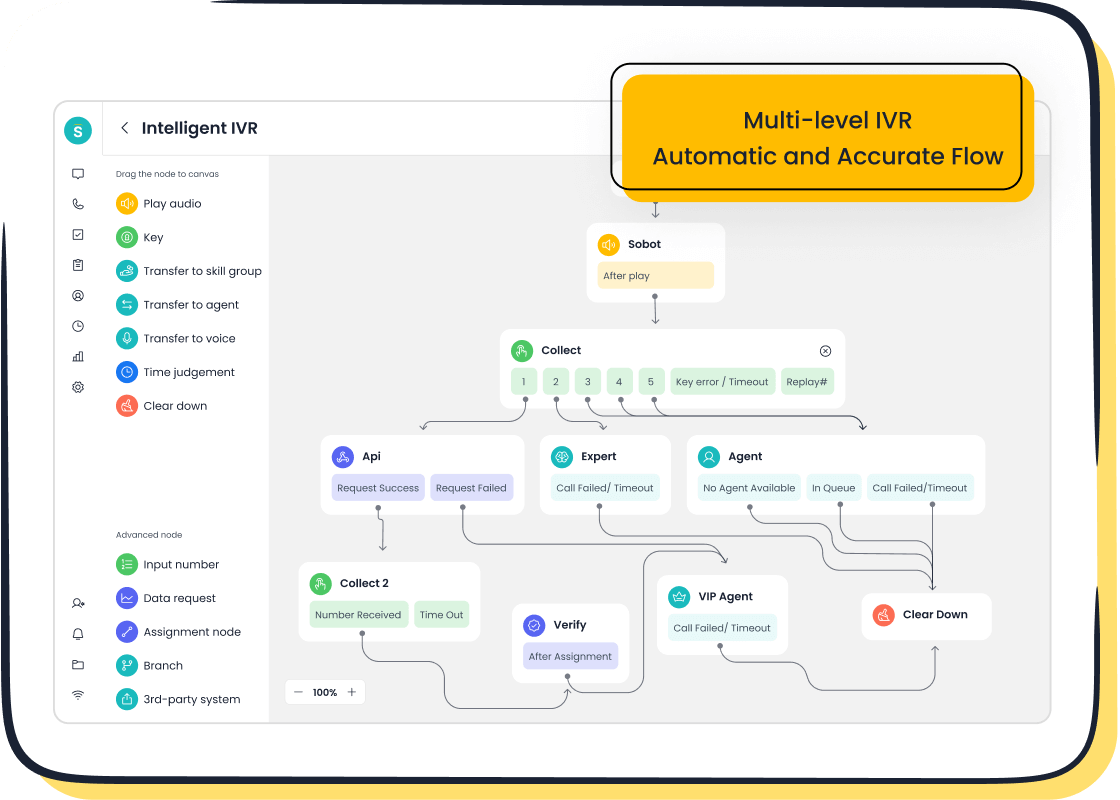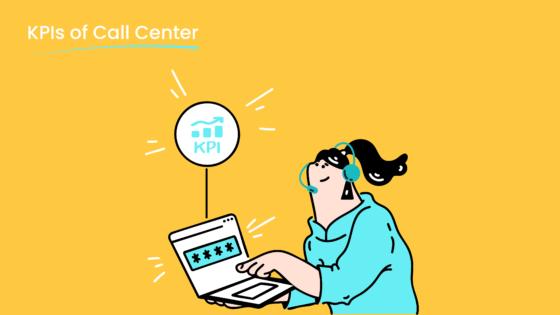Exploring CRM and Contact Center Roles

CRM systems and contact center software play essential roles in modern customer service. While CRM systems focus on managing customer relationships, contact center software facilitates seamless communication across channels. Together, they help businesses deliver exceptional service. For example, the Contact Center as a Service (CCaaS) industry improves customer interactions with advanced analytics and reduces costs by eliminating hardware investments. Studies also show that technology-based CRM enhances first call resolution and service quality, leading to higher customer satisfaction. By understanding these tools, you can decide whether to implement a crm contact center solution, like those offered by Sobot, to elevate your business performance.
What Is a CRM System?

Definition and Purpose of CRM
A Customer Relationship Management (CRM) system helps you manage and improve your interactions with customers. It acts as a centralized hub where you can store customer data, track interactions, and analyze behavior. Businesses use CRM systems to build stronger relationships, increase customer retention, and drive sales growth. According to recent studies, companies using CRM systems are 86% more likely to exceed their sales goals. These systems also contribute to a 21-30% increase in sales revenue and help 93% of businesses improve customer retention rates. By organizing customer information and automating repetitive tasks, CRM systems allow you to focus on delivering exceptional service.
Key Features of CRM Systems
CRM systems come with a variety of features designed to enhance your business operations. Some of the most effective features include:
Contact Management: Store and organize customer information in one place.
Sales Automation: Streamline your sales processes and track leads efficiently.
Analytics and Reporting: Gain insights into customer behavior and business performance.
Integration Capabilities: Connect with tools like email, social media, and marketing platforms.
Task Automation: Reduce manual work by automating routine tasks.
A survey revealed that 88% of CRM users understand the value of these features, while 80% believe CRM systems empower them rather than limit their control. These tools not only improve productivity but also enhance customer satisfaction by enabling proactive support.
Common Applications of CRM in Business
CRM systems are versatile and can be applied across various industries to meet specific needs. For example:
Real Estate: Boost revenue per sales representative by 41%.
Manufacturing: Increase sales by up to 30% through targeted marketing.
Education: Improve student satisfaction and retention by 53%.
Hospitality: Strengthen customer loyalty and encourage repeat business.
Non-Profit Organizations: Enhance donations by 21-30%. Manage donor relationships and fundraising with a nonprofit CRM solution.
Leading brands like Coca-Cola and Apple rely on CRM systems to manage customer relationships and streamline operations. Coca-Cola uses Salesforce and SAP to handle global client relationships, while Apple employs an in-house CRM to oversee customer data and marketing campaigns. These examples highlight how CRM systems can transform your business by improving efficiency and customer engagement.
What Is Contact Center Software?
Definition and Purpose of Contact Center Software
Contact center software is a technology solution designed to manage customer interactions across multiple communication channels, such as phone, email, chat, and social media. It helps you streamline operations, improve customer satisfaction, and enhance agent productivity. By centralizing communication, this software ensures that customers receive consistent and personalized service. For example, personalized routing directs customers to the most suitable agent, reducing wait times and improving their experience. Studies show that agents spend 14% of their time searching for information, which contact center software can minimize by providing a unified workspace. This efficiency not only boosts customer satisfaction but also reduces agent burnout, a common issue in the industry.
Key Features of Contact Center Software
Modern contact center software offers a range of features to optimize your customer service operations. Some of the most impactful features include:
Omnichannel Support: Manage interactions across multiple channels seamlessly.
Intelligent Call Routing: Automatically direct calls to the right agent based on customer needs.
Real-Time Monitoring: Track agent performance and customer interactions live.
Analytics and Reporting: Gain insights into metrics like Net Promoter Score (NPS) and first-call resolution rates.
AI-Powered Tools: Use AI to handle repetitive tasks and provide instant responses.
For instance, platforms like CloudTalk and Bright Pattern enhance customer service with features like call recording, monitoring, and real-time reporting. These tools help you maintain high service standards while scaling your operations.
Use Cases for Contact Center Software in Customer Service
Contact center software is versatile and can transform customer service across industries. Here are some examples:
Telecommunications: A company integrated post-call surveys and IVR self-service, achieving a 149% increase in NPS and a 93% improvement in first-call resolution rates.
Retail: Businesses use omnichannel platforms to provide seamless support, boosting customer loyalty.
Travel Insurance: A unified platform streamlined claims processes, enhancing customer satisfaction.

Sobot’s Voice/Call Center solution exemplifies these benefits. It offers intelligent IVR, global number availability, and AI-powered voicebots to improve customer interactions. With a 99.99% uptime and seamless CRM integration, it ensures reliable and efficient service. Whether you’re managing a small business or a large enterprise, this software can help you deliver exceptional customer experiences.
CRM vs. Contact Center Software: Key Differences
Functional Differences Between CRM and Contact Center Software
CRM systems and contact center software serve distinct purposes, each with unique functionalities. CRM systems focus on managing customer relationships by organizing data, automating tasks, and providing insights into customer behavior. These tools are essential for sales and marketing teams aiming to improve customer retention and drive revenue growth. For example, CRM systems can increase sales revenue by up to 30% and improve customer retention rates by 93%.
In contrast, contact center software specializes in managing customer interactions across multiple communication channels. It ensures seamless communication through features like intelligent call routing, real-time monitoring, and omnichannel support. These tools are critical for improving operational efficiency and enhancing customer satisfaction. For instance, contact center analytics can optimize first contact resolution (FCR) rates, a key metric for service quality.
CRM Systems Focus | Contact Center Software Focus | |
|---|---|---|
First Contact Resolution (FCR) | Not a primary focus | Critical for efficiency and customer satisfaction |
Average Handle Time (AHT) | Not applicable | Essential for measuring agent efficiency |
Customer Satisfaction Ratings | Important for sales and marketing | Key metric for service quality |
Sales Management | Central to functionality | Not a focus |
Customer Insights | Core feature | Limited relevance |
Marketing Automation | Integral part | Not applicable |
These differences highlight how CRM systems and contact center software complement each other. While CRM systems provide a strategic approach to customer management, contact center software focuses on operational excellence.
Purpose and Focus of CRM vs. Contact Center
The purpose of CRM systems extends beyond storing customer information. They empower you to act on that data through automation, reporting, and campaign tracking. A CRM system helps you build long-term relationships by understanding customer needs and delivering personalized experiences. For example, businesses using CRM systems report a 400% return on investment over the life of a project.
Contact center software, on the other hand, focuses on streamlining customer interactions. It ensures that customers receive timely and efficient support, whether through phone, email, or chat. By centralizing communication, this software reduces agent workload and improves customer satisfaction. For instance, intelligent call routing directs customers to the most suitable agent, minimizing wait times and enhancing their experience.
A contact management system (CMS) serves as a database for organizing client information, while a customer relationship management (CRM) system goes further by providing automation, reporting, and campaign tracking functionalities. Essentially, a CMS offers basic information, whereas a CRM equips users with tools to act on that information.
Understanding these distinct purposes can help you decide whether to implement a CRM system, contact center software, or an integrated crm contact center solution.
Business Applications and Use Cases
Both CRM systems and contact center software have diverse applications across industries. CRM systems excel in sales, marketing, and customer retention. For example, real estate companies use CRM systems to boost revenue per sales representative by 41%. In manufacturing, targeted marketing through CRM systems can increase sales by up to 30%.
Contact center software, however, focuses on enhancing customer service. It manages interactions across channels like voice, video, and social media. This software optimizes inbound and outbound operations, improving productivity and customer satisfaction. For instance, a telecommunications company using contact center software achieved a 149% increase in Net Promoter Score (NPS) and a 93% improvement in first-call resolution rates.
Aspect | Details |
|---|---|
Market Dominance | Integration and deployment segment accounted for over 41.0% revenue share in 2022. |
Growth Drivers | Increasing adoption of cloud-based solutions driving integration & deployment services. |
Business Investment | Global businesses are investing in integrating CRM with contact center software. |
Sobot’s crm contact center solutions exemplify the power of integration. By combining CRM capabilities with advanced contact center features, Sobot helps businesses unify sales, marketing, and support. This integration enhances customer interactions and improves operational efficiency, making it a valuable asset for industries like retail, financial services, and gaming.
The Role of CRM Contact Center Integration

Benefits of Integrating CRM and Contact Center Systems
Integrating CRM systems with contact center software creates a unified platform for managing customer interactions and relationships. This integration offers several advantages:
Real-time access to customer information enables personalized assistance, improving customer satisfaction.
Consolidating communication channels reduces the time needed to resolve issues.
Enhanced data sharing allows better tracking of agent performance and operational efficiency.
For example, businesses that integrate these systems report a 25% reduction in the time taken to resolve customer issues. Additionally, waiting times decrease by 20%, and customer satisfaction improves by 15%. These benefits make integration a powerful tool for businesses aiming to enhance their service quality and operational performance.
How Sobot's Voice/Call Center Enhances Integration
Sobot's Voice/Call Center solution exemplifies the power of CRM and contact center integration. It seamlessly connects with CRM systems, creating a unified workspace for agents. This integration allows agents to access customer data, manage interactions, and track performance metrics in real time.
Case Study Description | Key Metrics |
|---|---|
Reduced inbound discussion volume by 20% and increased positive feedback to 96%+ | |
Over 80% correct answers and 95% customer satisfaction | 80% correct answers, 95% satisfaction |
22.2% self-service question resolution and 97% CSAT score | 22.2% self-service, 97% CSAT |
Sobot's intelligent IVR and AI-powered voicebots further enhance this integration. These tools automate repetitive tasks, allowing agents to focus on complex issues. With a 99.99% system uptime and global number availability, Sobot ensures reliable and efficient service delivery. This makes it an ideal solution for businesses looking to unify their crm contact center operations.
Examples of Industries Benefiting from CRM Contact Center Integration
Many industries benefit significantly from integrating CRM systems with contact center software. Here are some examples:
Statistic Description | Value |
|---|---|
Increase in customer satisfaction after integration | 15% |
Reduction in waiting times due to integration | 20% |
Reduction in time taken to resolve customer issues | 25% |
Retail businesses use this integration to provide seamless omnichannel support, boosting customer loyalty. Financial services leverage it to guide customers through complex inquiries, improving satisfaction rates. In gaming, support teams resolve player issues more efficiently with integrated data and insights. These examples highlight how integration enhances customer experiences across diverse sectors.
Choosing the Right Solution for Your Business
When to Choose a CRM System
A CRM system is ideal when your primary goal is to manage customer relationships and improve sales and marketing efforts. It helps you organize customer data, track interactions, and automate tasks like follow-ups and email campaigns. For example, businesses using CRM systems often see a 3% increase in firm performance due to improved data management and user involvement.
CRM systems work best for industries like real estate, education, and hospitality, where customer retention and personalized engagement are critical. If your business needs to analyze customer behavior, track sales pipelines, or enhance marketing campaigns, a CRM system is the right choice.
Evidence Description | Key Findings |
|---|---|
Role of CRM consultants | |
Financial returns | High-quality CRM systems boost firm performance by 3%. |
Sobot’s CRM integration capabilities allow seamless data sharing and automation, making it easier for businesses to focus on building long-term customer relationships.
When to Choose Contact Center Software
Contact center software is the best option when your business needs to manage high volumes of customer interactions across multiple channels. It ensures efficient communication through features like intelligent call routing, real-time monitoring, and AI-powered tools. For instance, businesses using AI in contact centers report a 94% productivity boost and a 92% improvement in touchpoint resolution speed.
This solution is particularly effective for industries like telecommunications, retail, and gaming, where quick resolutions and consistent service are essential. If your goal is to reduce agent stress, streamline workflows, or improve customer satisfaction, contact center software is the right fit.
Metric | Percentage |
|---|---|
Client satisfaction with AI support | |
Productivity boost from AI | 94% |
Reduced agent stress | 87% |
Sobot’s Voice/Call Center solution offers intelligent IVR, global number availability, and AI-powered voicebots, ensuring reliable and efficient service delivery.
When to Opt for an Integrated CRM Contact Center Solution
An integrated CRM contact center solution combines the strengths of both systems, creating a unified platform for managing customer relationships and interactions. This option is ideal for businesses aiming to enhance customer experience, streamline processes, and reduce operational costs. For example, integration improves customer satisfaction by 15% and reduces waiting times by 20%.
Metric | Benefit |
|---|---|
Enhances satisfaction and loyalty | |
Increased Productivity | Streamlines processes and reduces workload |
Cost Efficiency | Reduces operational costs |
Sobot’s all-in-one contact center solutions exemplify this integration. They unify sales, marketing, and support, providing advanced analytics and automation to improve customer interactions and operational efficiency. This makes them a valuable asset for industries like retail, financial services, and gaming.
How Sobot's Solutions Cater to Diverse Business Needs
Sobot’s solutions are designed to address the unique challenges businesses face across industries. Whether you operate in retail, financial services, gaming, or education, Sobot provides tools that enhance customer service and operational efficiency.
1. Tailored Features for Every Industry
Sobot’s Voice/Call Center solution offers features like intelligent IVR, global number availability, and AI-powered voicebots. These tools help businesses manage high volumes of customer interactions efficiently. For example, a retail company can use Sobot’s omnichannel capabilities to provide seamless support across email, chat, and phone. This approach improves customer satisfaction and loyalty.
In financial services, Sobot’s integration capabilities allow you to connect CRM systems with contact center software. This integration ensures agents have real-time access to customer data, enabling personalized assistance. Studies show that personalized service can increase customer retention by 15% (source).
2. Proven Results Across Industries
Sobot’s solutions have delivered measurable results for global brands. For instance, Samsung achieved a 97% customer satisfaction rate after implementing Sobot’s all-in-one contact center solution. The integration of communication channels and data systems improved agent efficiency by 30%.
Tip: Unified platforms like Sobot’s reduce repetitive tasks, allowing agents to focus on complex customer issues.
3. Scalability and Reliability
Sobot supports businesses of all sizes with its scalable and secure solutions. With a 99.99% system uptime and global network coverage, you can rely on Sobot to deliver consistent service. Whether you’re a startup or an enterprise, Sobot’s tools adapt to your needs, ensuring long-term success.
By choosing Sobot, you gain access to cutting-edge technology that simplifies customer interactions and drives business growth. Explore Sobot’s solutions to see how they can transform your customer service operations.
CRM systems and contact center software serve distinct purposes. CRM systems focus on managing customer data, automating tasks, and providing actionable insights. Contact center software specializes in handling customer interactions across channels.
CRM Systems | Contact Center Software | |
|---|---|---|
Customer Information Management | Centralizes customer data for easy access | Often lacks comprehensive data management |
Automation of Manual Tasks | Reduces repetitive tasks through automation | Typically focuses on call handling |
Personalization of Service | Enables tailored interactions based on customer data | Limited personalization capabilities |
Integrating these tools enhances customer service and operational efficiency. Sobot’s solutions unify these capabilities, helping you deliver exceptional service. Explore how Sobot can transform your business today.
FAQ
1. What is the difference between CRM and contact center software?
CRM systems manage customer relationships by organizing data and automating tasks. Contact center software handles customer interactions across channels like phone and chat. CRM focuses on sales and marketing, while contact center software improves communication efficiency.
2. How does Sobot’s Voice/Call Center integrate with CRM systems?
Sobot’s Voice/Call Center connects seamlessly with CRM systems. It provides a unified workspace for agents to access customer data, track interactions, and analyze performance. This integration enhances customer service and operational efficiency.
3. Can small businesses benefit from Sobot’s solutions?
Yes! Sobot’s solutions cater to businesses of all sizes. Small businesses can use features like batch outbound calling and intelligent IVR to improve customer interactions. The SaaS rental model ensures affordability and scalability.
4. What industries use CRM contact center integration?
Retail, financial services, gaming, and education benefit from CRM contact center integration. It improves customer satisfaction, reduces waiting times, and streamlines operations. For example, Samsung achieved a 97% satisfaction rate using Sobot’s integrated solution.
5. Is Sobot’s system secure and reliable?
Absolutely! Sobot ensures encrypted data transfer and a 99.99% system uptime. Its global network coverage and AI-powered tools provide secure and stable operations for businesses worldwide.
See Also
Exploring The Responsibilities Of IT Call Center Agents
A Decade Of Steps For Omnichannel Contact Center Success
Essential Characteristics Of CRM Software For Call Centers
Best Reviewed Cloud Contact Center Services For 2024
Comprehensive Guide To Quality Management Systems In Call Centers
